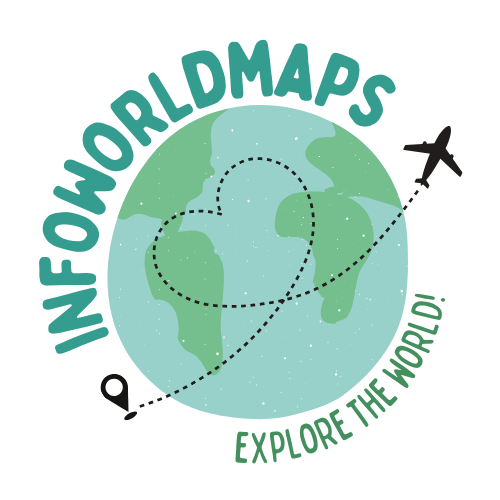Looking for a guide to travel to madagascar? If you still don’t know what is needed to travel to madagascar, we are going to explain everything you have to prepare for the entrance to Madagascar and departure. general information and Requirements to travel to Madagascar with its customs, laws and limitations in the customs of Madagascar. You have available this travel guide with the emergency telephone numbers, the best time to travel to madagascar and everything you need to know to travel safely.

MADAGASCAR
| Capital | Antananarivo (See map.) |
| Languages | French Y Malagasy |
| Currency | Malagasy ariary |
| Voltage | 220 volts |
| Freq. | 50Hz |
| peg | Type C and E |
General information of Madagascar
With the current situation you may have to fill out some kind of form to travel to Madagascar or covid Madagascar requirements, so we recommend you check what is needed to travel to madagascar in this travel guide.
To make calls to Madagascar
- To landline: 00 + 261 + one digit of the area code + six digits of the telephone number
- To mobile: 00 + 261 + nine digits of the phone
Guide to travel to Madagascar entry requirements
- You must provide a negative PCR test taken 72 hours prior, or an antigen test upon arrival at a cost of €15/US$25/65,000 Ariary in cash.
- If your antigen test result is positive, you will be asked to quarantine for seven days at a designated hotel, at your own expense, and may be referred to a local medical center for treatment if you develop severe symptoms. You should check what your insurance covers before you travel.
- Your passport must be valid for 6 months from the date of arrival and must have at least 3 blank (“Visa”) pages.
- Requires yellow fever vaccination if visiting a country with transmission within 6 months prior to arrival in Madagascar.
Guide to travel to Madagascar requirements to leave
You must provide a negative PCR test taken 72 hours prior.

Customs information Madagascar
prohibited items
- Weapons and ammunition.
- Counterfeit products.
- Products that violate morality.
- Endangered animals and plants and their derived products protected by the Convention on International Trade in Endangered Species of Wild Fauna and Flora (CITES).
- Meat products require a health certificate and an import authorization from the Regional Veterinary Service.
- Plants and food products require a phytosanitary certificate and an import permit issued by the Ministry of Agriculture, Livestock and Fisheries.
- Pets must be accompanied by a valid rabies vaccination certificate and evidence of import permit.
Madagascar local currency
The Malagasy Ariary (MGA) is the legal tender of The most widely accepted foreign currency is the Euro, but US dollars and British pounds are easily exchanged.
For more information regarding the local currency or payment methods of the country, consult the section recommendations in money to travel abroad of this guide.
Malagasy customs
Make sure you know the customs of the country so you can know what the best time to visit madagascar. Here are the most common.
- In many parts of Madagascar, aspects of daily life are regulated by taboos, known as fady. These vary from region to region a Fady can range from prohibited foods to restrictions on clothing. If you intend to visit remote areas, please seek local advice or from your tour operator and respect the local fady so as not to cause offence.
- If you plan a longer stay in a village, ask to pay your respects to the head of the Fokontany (administrative subdivision), the village chief or ‘Rayaman-dreny’ (wise man).
Is it safe to travel to Madagascar?
Some parts of Madagascar are not safe to travel. You must check the security of the areas you will visit. Be careful due to crime.
Laws of Madagascar
- Drug smuggling is a crime
- Payment for prostitution services is punishable by 5 to 10 years in prison and/or a fine of €1,500 to €7,
- The campaign against sexual abuse of minor children (under 18 years of age) is strictly enforced with special attention to foreign tourists.
- The import and export of foodstuffs (including fruits), protected plants and animal products without prior permission is illegal.
- The consumption of protected plants (especially rosewood) and animals and animal products is illegal.
Other recommendations in guide to travel to Madagascar
- Do not forget to notify your bank that you will travel to Madagascar, so that they can inform you how to act in case of theft or loss of your credit cards in Madagascar, or problems that you could have when withdrawing money with your cards abroad.
- If you want to rent a car, make sure you have a driver’s license written in English, as car rental companies do not accept driver’s licenses issued in Spanish.
- Recommendations and more advice by topic or type of traveler, visit the section of recommendations for your trip abroad of this guide to travel to Madagascar.
FAQ (Frequently Asked Questions)
What are the recommendations to go to Madagascar?
Avoid crowds, demonstrations or concentrations.
Avoid long and unnecessary journeys on public transport.
Wear a face mask in public places.
Take out travel insurance and/or international medical insurance.
Always carry at least a copy of your Mexican passport and an official photo ID, and keep an electronic copy of them.
Have contact information in that country at hand (hotels, friends, the emergency telephone number of the Mexican Embassy in South Africa, among others).
What are the emergency telephone numbers in Madagascar?
Emergency Services (police, medical emergencies and firefighters): 117.
What are the most visited tourist sites in Madagascar?
Ile Sainte Marie, Isalo National Park, Tsingy de Bemaraha, The small island of Nosy Be and the Avenue of the Baobabs.

Leave A Comment